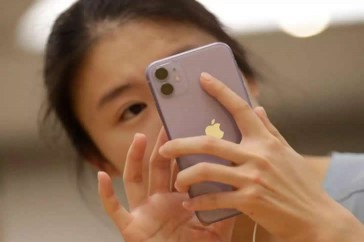The increasing reliance on smartphones in our daily lives has also led to a rise in cyber attacks targeting these devices. While iOS users may feel a certain level of security due to the closed operating system, it’s crucial to acknowledge that they are not immune to being targeted. To mitigate these risks, there are three essential settings that iOS users must implement to safeguard their devices and personal information.

Face ID: The first critical setting that every iOS user should activate is face recognition. Despite the availability of password protection and biometric security measures like fingerprint scanning and facial recognition, there are still many individuals who use their phones without any form of password protection. Experts strongly advise against this practice and recommend utilizing features like facial recognition for enhanced security.
To activate face recognition on your iOS device, follow these steps:
Go to the Settings menu and select “Face ID & Password.”
If prompted, enter your password.
Tap on “Set Up Face ID.”
Hold your device in portrait orientation and position your face in front of it.
Tap “Get started” to begin the setup process.
Place your face within the designated frame and slightly move your head to complete the circular motion.
If you’re unable to move your head, there is an option to tap on “Accessibility Options.”
Once the initial Face ID scan finishes, tap “Continue.”
Slowly move your head once again to complete the circular motion for the second time.
Tap “Done” to finalize the process.
Two-Factor Authentication (2FA): Another crucial setting that iOS users must activate is two-factor authentication. This security measure adds an additional level of verification beyond a password when signing in, acting as a powerful deterrent against hackers. Even if your password has been compromised or guessed, the presence of 2FA ensures that your account remains secure.
To set up two-factor authentication on your iOS device, follow these steps:
Access the Settings menu and select “[your name] > Password & Security.”
Tap on “Turn on Two-Factor Authentication” to begin the setup process.
Tap “Continue” to proceed.
When prompted, enter the phone number where you wish to receive verification codes.
Choose whether to receive codes via text message or automated phone call.
Tap “Next” to proceed.
Enter the provided verification code to verify your phone number and enable two-factor authentication.
iCloud Keychain: The iCloud Keychain feature acts as a robust defense against hackers attempting unauthorized access to your accounts. It securely stores and encrypts the passwords you enter on your iPhone, allowing you to generate and use strong passwords without the burden of remembering them. Your phone will automatically input the correct password when signing in to various services, minimizing the risk of keystroke loggers or password interception.
To activate iCloud Keychain on your iOS device, follow these steps:
Access the Settings menu and tap on “iCloud > [your name]” (on iOS 10.2 or earlier, select “Settings > iCloud” only).
Tap on “Keychain” and enable iCloud Keychain.
In conclusion, as smartphones become increasingly integrated into our lives, it is imperative that iOS users take proactive steps to protect themselves from the growing threat of cyber attacks. By activating face recognition, implementing two-factor authentication, and utilizing iCloud Keychain, users can significantly enhance their device’s security and safeguard their personal information. These simple measures are essential in today’s world, where the risk of cybercrime continues to rise. Don’t leave your iOS device vulnerable to hackers—empower yourself with these crucial settings today.
Additionally, for new iPhone users, it’s important to set up your Apple ID, regularly back up your data, customize your settings, familiarize yourself with gestures, explore the pre-installed apps, utilize Siri, take advantage of iCloud, and stay safe by enabling two-factor authentication, setting up a passcode, and using a VPN. By following these tips, you can configure your iPhone settings to protect your data and make your iPhone work the way you want it to.








